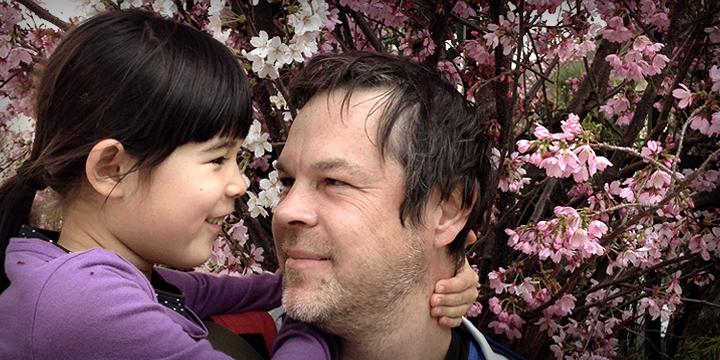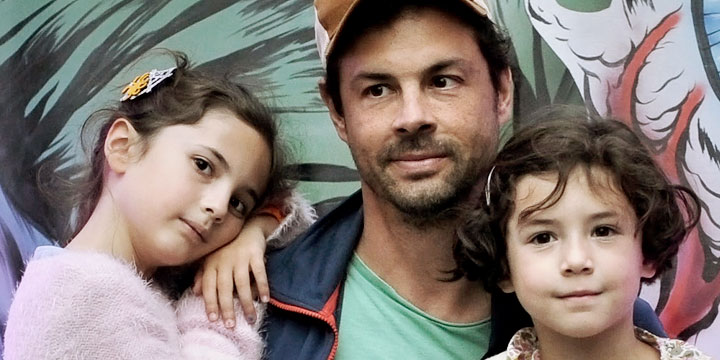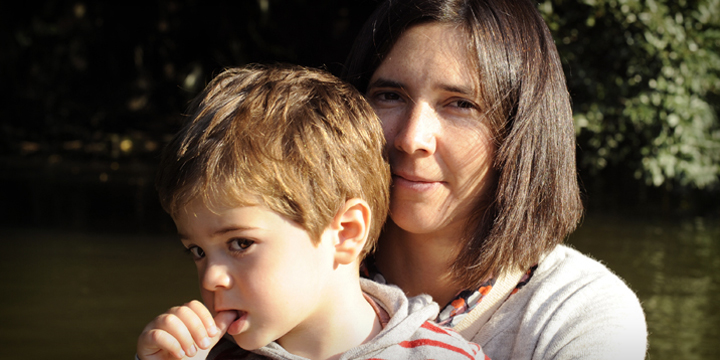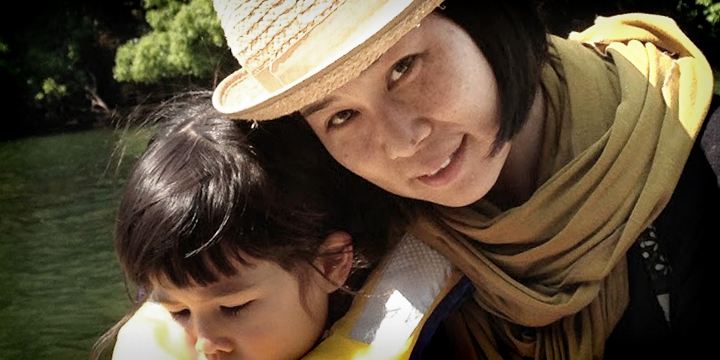Why watch films?
Cinema helps children develop an artistic sense and contributes to their intellectual, sensory, emotional and relational development.
 © Peter Jon Pearce. Playground climbing sculpture at the Hakone Open-Air Museum, Japan.
© Peter Jon Pearce. Playground climbing sculpture at the Hakone Open-Air Museum, Japan.
In the school setting, films create a shared framework of reference and, from a young age, allow children to learn how to live together and let their personality blossom.
Like books, painting and music, films allow children a moment to relax, in addition to developing their own tastes. Children learn to develop an opinion about what they watch. Every child can decide what his or her favorite films are and this is the starting point for creation.
Developing their own tastes
Our portal of films for children focuses on the poetic aspect and originality of visual universes. Our hope is that they will become a tool for promoting artistic awareness and awakening.
Ask children their opinions about what they've watched. Cultivate their desire to draw, tell stories, share their experiences, exchange opinions and invent new artistic practices.
Why free films?
Our educational system stresses equal opportunity and cultural democracy.
Over and above social inequality, artistic education must provide every student with equal access to knowledge about the art field.
Children learn in school but also outside of school walls.
Choosing free films takes into account that extracurricular activities and informal learning are just as important as time spent in school. Making films free gives children the possibility to watch the films studied in class a second time at home.
Equal access to knowledge about the art field
Many producers and production companies put their films online for free with the sole aim of sharing their passion for cinema.
Short films are rarely commercial films and, today, there are very few economic options and models that make them financially viable.
Watch the films studied in class a second time at home
We are considering creating a grant-based payment system so that producers can continue offering their films for free.
Why silent films?
Feature-length silent films have practically disappeared from screens but short films without spoken dialogue are being produced all the time.
We mainly select silent films, not because we don't like talking films, but because we think silent films give children the power of speech.
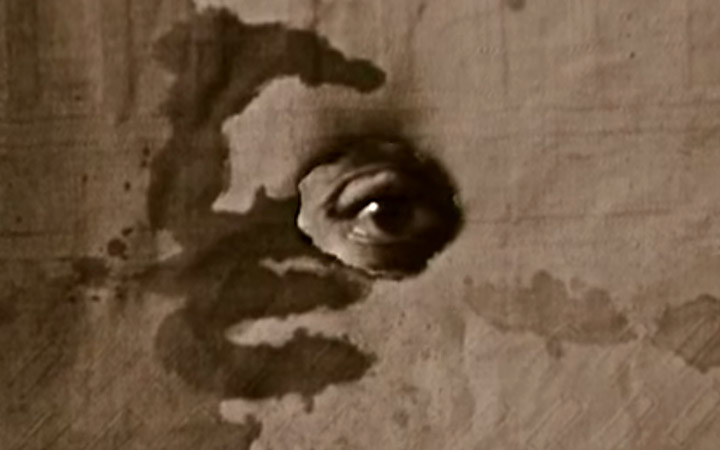 © Buster Keaton and Clyde Bruckman. Silent comedy film : The General, 1926.
© Buster Keaton and Clyde Bruckman. Silent comedy film : The General, 1926.
Try watching a silent film, such as The General
(1926) with Buster Keaton and Clyde Bruckman, with your students or children.
Right from the start, the silent film transforms into a film with as much dialogue as there are children! Not a minute goes by without comments, interpretations, questions and laughs from the children.
Silent films give children the floor
The universe of sound takes centre stage in silent film and studying the role of music and sound effects in a film production is fascinating.
Have some fun with students watching a short film with their eyes closed. It is an exercise that is rich in lessons on the influence of sound on our emotions and the dramatic effects of a film.
Why a portal of short films for children?
There is a surprisingly small number of portals available on the internet.
In the beginning, we were looking for films to show our own children. We found many that we loved but we had to continually search the web and save links. We couldn't find a portal that provided access to films.
Marvellous films that allow children to develop their creativity
So many online resources, free teaching materials and marvellous short films that allow children to learn and develop their creativity are unknown by the general public, teachers and parents, and, most importantly, children!
In addition, many directors and producers offer their films for free online but parents and teachers nevertheless have trouble finding them.
As a result, the purpose of our
selection of films for children is to increase the visibility of films and guide adults in the choices they make for their children.
Starting at what age do you recommend watching the films on your site?
Starting at three and up to 99! In fact, the films we've selected are not films that were specifically created for children.
In many cases, they are films that were made for adults. This is also what we think makes our film portal interesting.
We want to offer children films that they might not normally have the opportunity to watch.
How much time do you think your child should spend watching television or films?
TV doesn't let you choose the time, nor the content.
When it comes to films for children under six years old, two to three hours per week at the most is recommended and, most importantly, in the company of parents. Instead of simply showing films to children, make it a special time shared with parents, teachers or friends that allow you to have a discussion.
Do children have a choice in what they are watching?
Just like video games, films are excellent educational tools ... if you don't leave your child all alone. Between the ages of six and 15, children will most likely choose to watch films more regularly but we think that it must not become a normal activity; it should still be a magical experience.
Do you think you should show your child a film even if he or she doesn't like it?
Eat your vegetables! Yes, it's important. A child might not like a film but diverse experiences are important.
 © Christophe Defaye.
© Christophe Defaye.
In addition, tastes evolve, but even if a child doesn't like vegetables, he or she will have tasted them.
Blockbusters standardize children's tastes starting at a young age. We believe it's important to try offering a diverse selection at an early age. The same goes for books, music, the visual arts and even meals.
You've created a series of interviews with producers. Why?
Our site is not just visited by schoolteachers, parents and children.
More and more festival directors and other film professionals are consulting it. We wanted to discover and share the underlying universe of films and the conscious and subconscious frames of reference behind producers' creations.
In the style of
Proust Questionnaire
and its origin, named “Confessions,” the goal of the questionnaire is to reveal the tastes and aspirations of different creators.
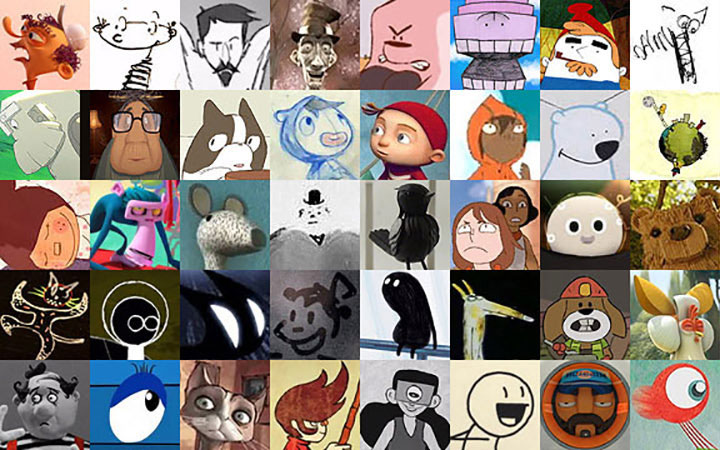 © Directors.
© Directors.
However, unlike the Proust questionnaire, we do not ask creators about their real world (for example, their favorite virtue or what they like most about their friends). Instead, we focus on their imaginary world (for example, a fictitious character that they would like to meet or a fictitious world in which they would never want to live).
Our "oneiric questionnaire" takes creators and directors behind the scenes to reveal the dreamlike universes and imaginary worlds that influence their work.
Quelques citations ?
"Par l'art seulement, nous pouvons sortir de nous, savoir ce que voit un autre de cet univers qui n'est pas le même que le nôtre et dont les paysages nous seraient restés aussi inconnus que ceux qu'il peut y avoir dans la lune."
Le Temps retrouvé, Marcel Proust
"Tu as des cheveux couleur d'or. Alors ce sera merveilleux quand tu m'auras apprivoisé ! Le blé, qui est doré, me fera souvenir de toi. Et j'aimerai le bruit du vent dans le blé."
Le Petit Prince, Antoine de Saint-Exupéry
"L'artiste a le pouvoir de réveiller la force d'agir qui sommeille dans d'autres âmes."
Friedrich Nietzsche
FILMS POUR ENFANTS
5 impasse du Petit Modèle, 75013 Paris
info(at)films-pour-enfants(dot)com
